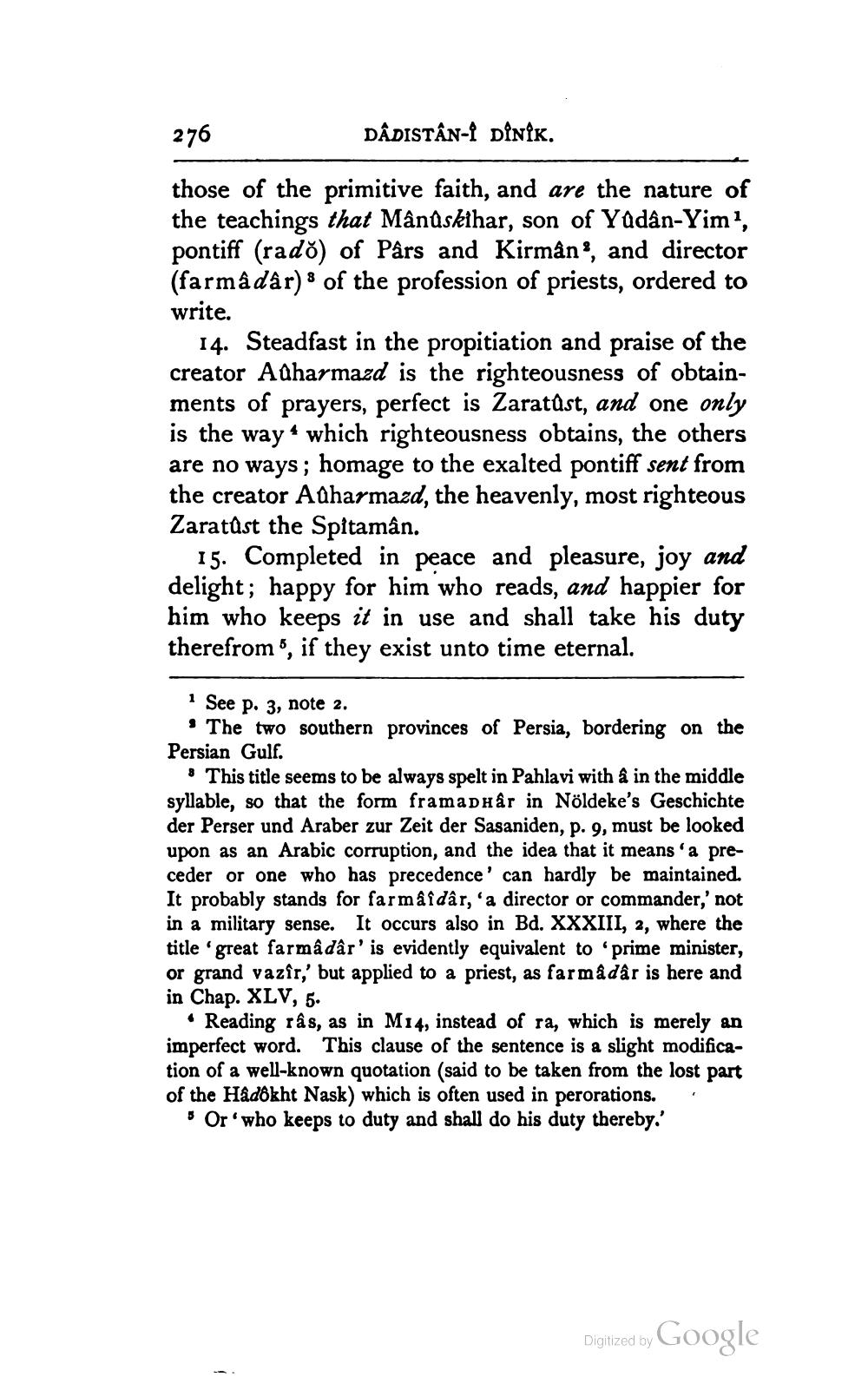________________
276
DÂDISTÂN-İ DİNİK.
those of the primitive faith, and are the nature of the teachings that Mânûskihar, son of Yûdân-Yim1, pontiff (rado) of Pârs and Kirmân, and director (farmâdâr) of the profession of priests, ordered to write.
8
4
14. Steadfast in the propitiation and praise of the creator Aûharmazd is the righteousness of obtainments of prayers, perfect is Zaratust, and one only is the way which righteousness obtains, the others are no ways; homage to the exalted pontiff sent from the creator Aûharmazd, the heavenly, most righteous Zaratust the Spitamân.
15. Completed in peace and pleasure, joy and delight; happy for him who reads, and happier for him who keeps it in use and shall take his duty therefrom, if they exist unto time eternal.
1 See p. 3, note 2.
The two southern provinces of Persia, bordering on the Persian Gulf.
* This title seems to be always spelt in Pahlavi with â in the middle syllable, so that the form framaDHâr in Nöldeke's Geschichte der Perser und Araber zur Zeit der Sasaniden, p. 9, must be looked upon as an Arabic corruption, and the idea that it means 'a preceder or one who has precedence' can hardly be maintained. It probably stands for farmâîdâr, 'a director or commander,' not in a military sense. It occurs also in Bd. XXXIII, 2, where the title 'great farmâdâr' is evidently equivalent to 'prime minister, or grand vazir,' but applied to a priest, as farmâdâr is here and in Chap. XLV, 5.
•
Reading râs, as in M14, instead of ra, which is merely an imperfect word. This clause of the sentence is a slight modification of a well-known quotation (said to be taken from the lost part of the Hâdokht Nask) which is often used in perorations.
"Or 'who keeps to duty and shall do his duty thereby.'
Digitized by
"
Google




